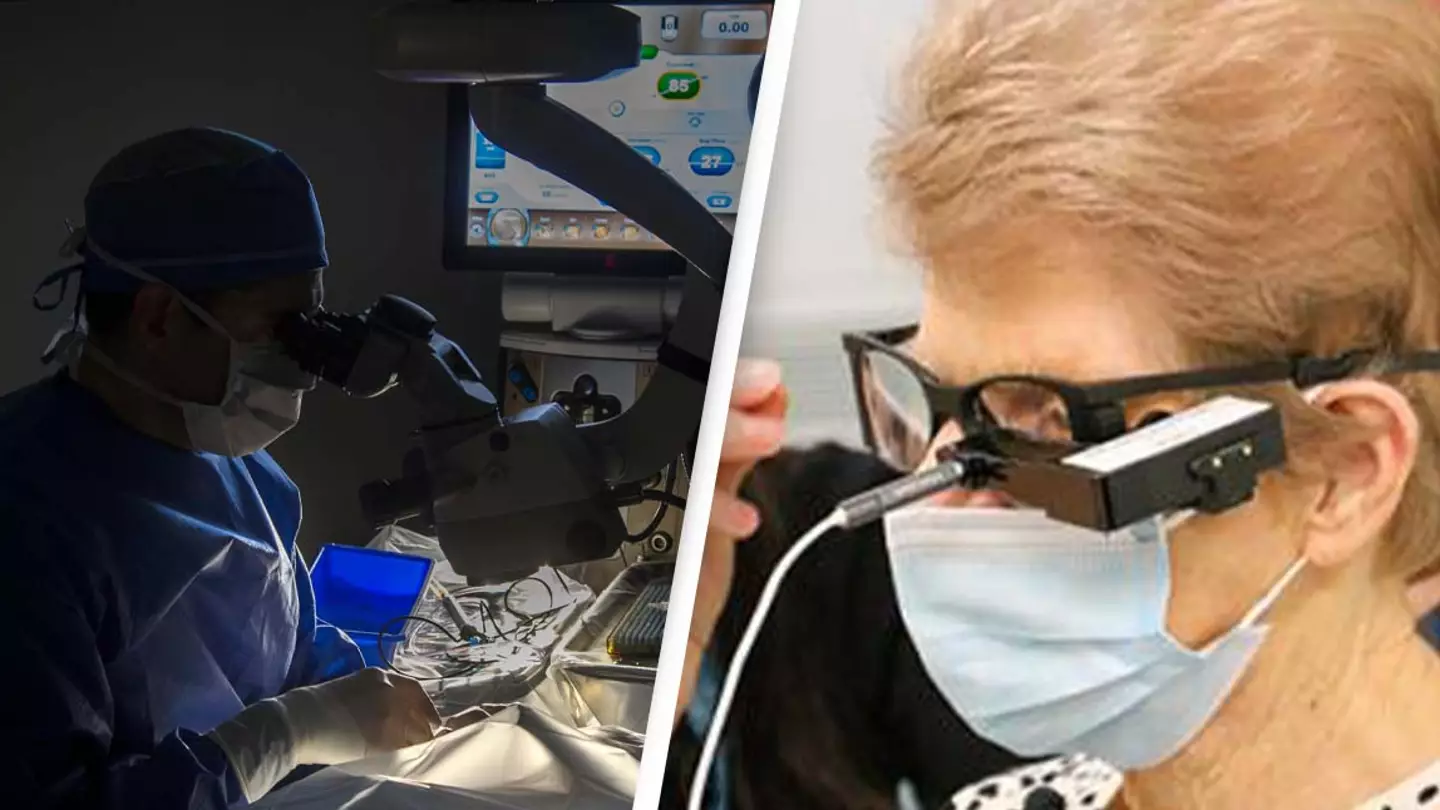

An 88-year-old woman has detected signals in her blind eye thanks to a groundbreaking new bionic implant from French company Pixium Vision.
As part of the treatment, the woman had a 2mm wide microchip - called a Prima System device -implanted under her retina and wore special glasses with a camera connected to a computer around her waist.
Advert
The chip captures the video from the glasses and transmits it to the computer, which uses AI algorithms to identify objects and guide the focus of the glasses. The glasses then project this view through the eye and into the microchip via an infra-red beam, with the chip then converting that into electrical signals which are sent to the brain.

The brain interprets these signals as though they were natural vision, meaning that through this technology a person can see through their blind eye once again.
The treatment was done at Moorfields Eye Hospital in London as part of a Europe-wide trial which could bring significant benefits to the blind if it can help them see again.
Advert
Thanks to the bionic implant, the 88-year-old woman could go on to make out words through her blind eye, which occurred as a result of dry age-related macular degeneration (AMD).
'Losing the sight in my left eye through dry AMD has stopped me doing the things I love, like gardening and playing indoor bowls', she said.
'I am thrilled to be the first to have this implant, excited at the prospect of enjoying my hobbies again and I truly hope many others will benefit from this.'
According to the Daily Mirror, there are around 600,000 people in the UK suffering from sight loss caused by AMD, so this groundbreaking new treatment could end up being a crucial part in the efforts to counteract age-related blindness.
Advert
Mahi Muqit, consultant surgeon at Moorfields Eye Hospital, said: 'The success of this operation, and the evidence gathered through this clinical study, will provide the evidence to determine the true potential of this treatment.
'This groundbreaking device offers the hope of restoration of sight to people suffering vision loss due to dry AMD.'
If you have a story you want to tell, send it to UNILAD via [email protected]
